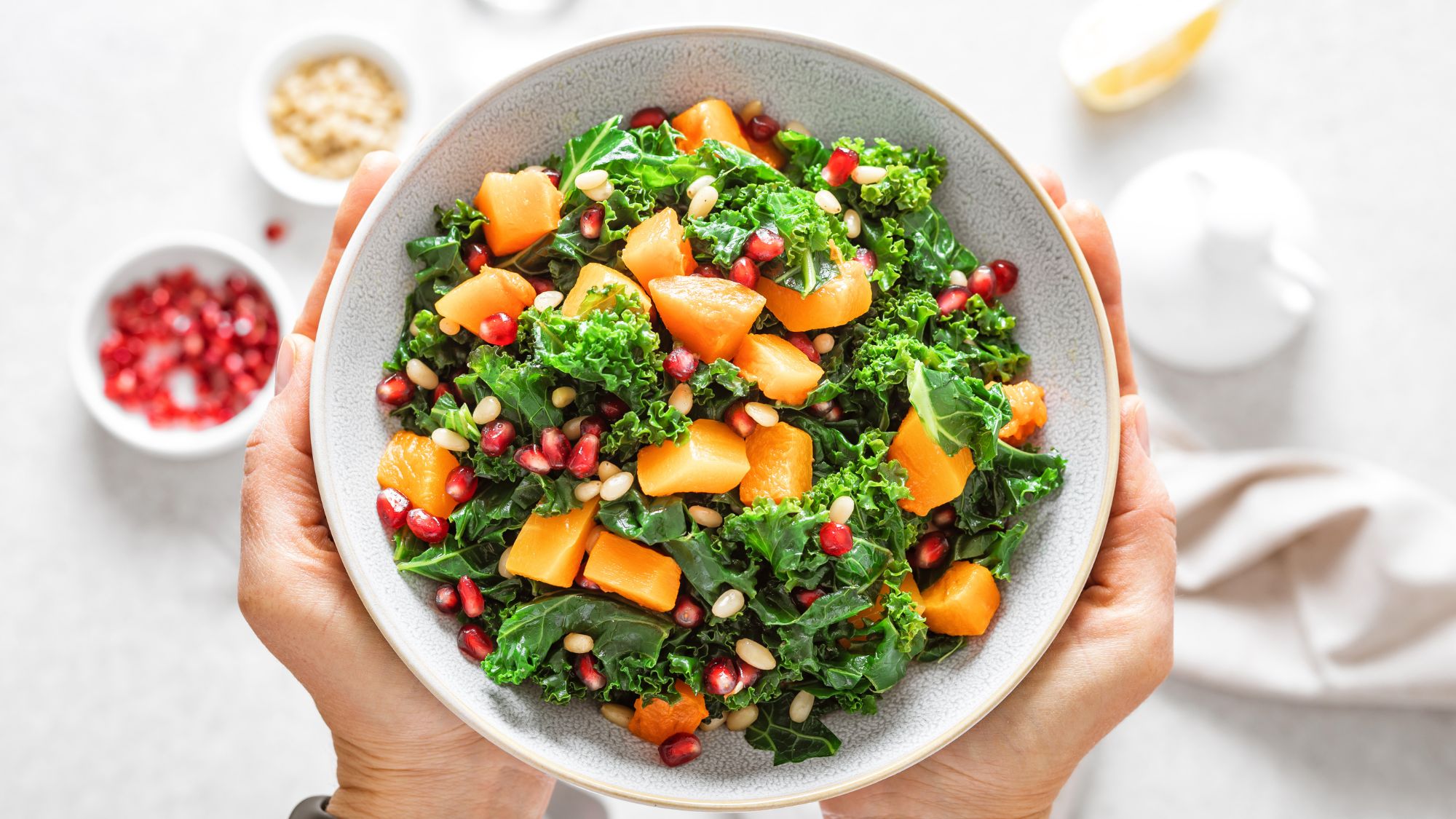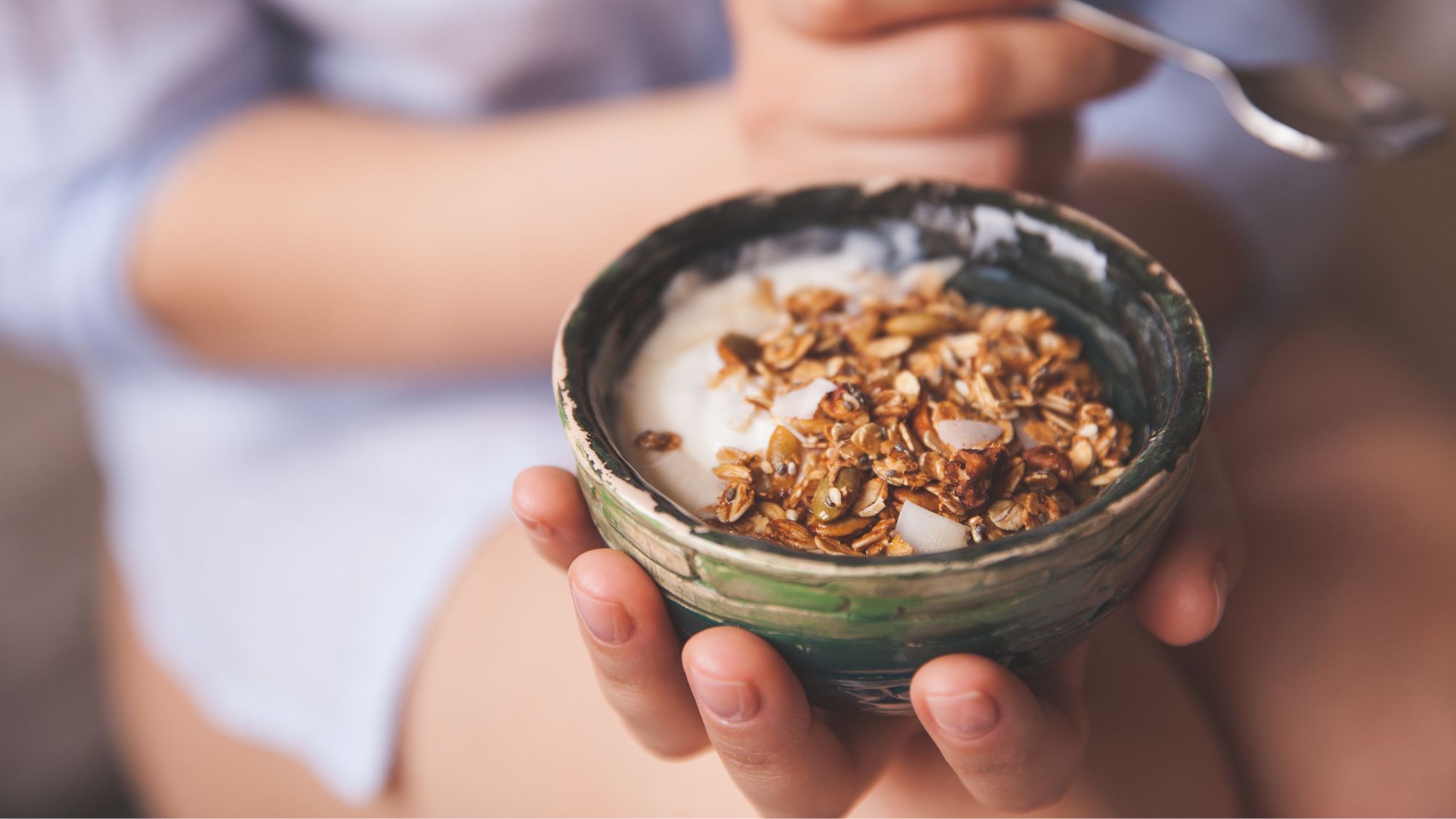Ultra processed foods are headline news - 7 foods you wouldn't know are actually highly processed
Plus, what actually constitutes an ultra processed food.


Celebrity news, beauty, fashion advice, and fascinating features, delivered straight to your inbox!
You are now subscribed
Your newsletter sign-up was successful
Could the food we eat be making us sick? That’s the question in BBC’s new Panorama documentary, Ultra Processed Foods: A Recipe for Ill Health, which comes after dozens of studies have linked the consumption of ultra processed food to an increased risk of developing serious illnesses.
Take this study from earlier in the year conducted at Imperial College's School of Public Health, which found that higher consumption of ultra processed foods may be linked to an increased risk of developing cancer.
“In the last decade, the evidence has been slowly growing that ultra processed food is harmful to us in ways we hadn’t thought. We’re talking about a whole variety of cancers, heart disease, strokes, and dementias,” Tim Spector, a professor of epidemiology at King’s College London, says in the Panorama documentary.
It's important to remember that eating a balanced diet requires just that - enjoying a balance of nutrient-dense foods and foods that bring us joy that might be highly processed - it can also be helpful to stay up to date with which foods to be loading your plate with and which to be enjoying mindfully.
To learn just that, keep scrolling. Don't miss our guides to the best foods for hormones, foods to boost energy, and foods to boost mood while you're here.
Ultra processed foods: your guide
What are ultra processed foods?
First things first: a definition for you. Ultra processed foods - otherwise known as UPFs - are defined within the NOVA classification as industrially processed, hyper-palatable foods that aren't nutritionally dense.
According to Spector, ultra processed foods have more than five ingredients, undergo a high level of industrial processing and are designed to be hyper-palatable.
Celebrity news, beauty, fashion advice, and fascinating features, delivered straight to your inbox!
A post shared by Tim Spector MD FRCP OBE (@tim.spector)
A photo posted by on
What’s the difference between processed and ultra processed food?
Some food might be processed – for example, oats can be rolled to make porridge or nuts can be blended to make peanut butter, meaning they've gone through a process before they reach your plate.
"Food becomes "ultra processed" when you start adding chemicals, colourings, sweeteners, or preservatives and emulsifiers," explains nutritionist Emily Kier at Renee McGregor Nutrition. "A lot of our food has been processed in some manner because of the volume of our food industry. Ultra processed food is when we're really changing that food and extending its shelf life."
How can you spot ultra processed foods?
The best way to identify super-processed food is to check the ingredients list and look out for colourings, flavourings, artificial sweeteners, emulsifiers, modified starches or stabilisers, explains Kier.
Top tip: "Have a look at the label," she recommends. "If there are a lot of ingredients that you do not recognise or the ingredients list is incredibly long, then that will probably be because it's ultra-processed. Ultra processed food tends to be long shelf life, and is high in salt and sugar content to help preserve."
The purpose of this article isn't to scaremonger - we will all consume ultra processed foods in some capacity. That's just a part of living in the 21st century. However, arming yourself with nutritionist-led information about how foods are made can be a great way to empower yourself and your food choices.
7 ultra processed foods you might not realise are highly processed
1. Bread
Not all bread is highly processed - sourdough, pumpernickel and so on usually aren't - that said, mass produced white bread stereotypically falls into the UPFs category.
The best way to tell if bread is ultra processed is to look at the ingredients list. "If it's got a really long shelf life, then it might be pushing it into the ultra processed category," explains Kier.
Try this: the nutritionist suggests going into the bakery area and buying your bread. "These types tend to have a shorter shelf life, meaning they're less processed. If you're worried about it going off, slice the bread, put it into your freezer and then toast it in order to prolong the shelf life and reduce the waste." If you'd rather, you can also opt for bread from your local bakery or try making bread from scratch at home, which will both be less processed and, in turn, more nutrient-dense.
2. Breakfast cereals
While you'll likely know that Coco Pops, Krave and other chocolate-laden cereals include sweeteners, you'd be surprised at the amount of "healthy" granola and protein-enriched options that are highly processed and contain a lot of sweeteners.
Again, be sure to look at the ingredients on the back before purchasing, advises Kier. "If you'd rather make yourself, try building your own using rolled oats, dried fruit like raisins, sultanas, or chopped apricot, and whatever nuts and seeds you'd like. That way, you know exactly what's going into your breakfast bowl."
3. Soups
Again, we'll all know that tinned or instant soups aren't the most nutrient-rich - they normally contain a lot of additives and ingredients that you won't know the name of.
Similarly, the "healthier" supermarket options can often be a minefield, explains the nutritionist. Think about it - if you're opting for a supermarket soup and highly processed soup for lunch every day during winter, you're actually consuming a lot of highly processed ingredients without realising it.
Try this instead: make your own soup at home and pack it full of your favourite vegetables and legumes. "Making your soup is actually incredibly easy," explains Kier. "Making it in large volumes and freezing it will come in handy for WFH lunches, too."
Do note, though: if supermarket soup isn't something you're having frequently, then the cause of concern isn't necessarily there, she explains. And, of course, there are many supermarket brands, such as options from brands like Daylesford and BOL, which aren't as highly processed and contain fewer ingredients.

4. Pre-packaged and microwave-ready meals
Not the most surprising, sure, but many of the "healthier" ready meals are still chock-full of additives, classifying them as ultra processed.
"The main thing to look out for with pre-packaged and microwave-ready meals is the salt levels," shares the nutritionist. "If you're looking for meals like this – something that's quick and easy to make and requires little cooking skills – you can replicate a pre-packed meal by buying something like frozen fish fillets that you could put straight onto an oven tray, with a pouch of rice and frozen peas," suggests Kier.
MC UK Health Editor Ally Head is also a fan of both Mindful Chef and Allplants ready meals, both of which offer less processed options that you can pop in the freezer. Read our round-up of the best healthy meal delivery services, here.
5. Fruit-flavoured yogurts
Did you know? A lot of flavoured yoghurts can have fruit syrups and sweeteners in them, instead of real fruit, making them ultra processed, shares the nutritionist.
Her swap? Opt for plain natural yoghurt or Greek yoghurt and add your favourite fruit on top.
Do note, too - flavoured yoghurts may be ultra processed, but they can be handy for fuelling endurance sport "as they're a really good way of getting a bit more carbohydrate into a yoghurt," explains Kier.
As always, it's about weighing up the nutritional pros and cons of a food and assessing it in relation to your diet and lifestyle.
6. Meat
Again, not all meat is ultra processed, that said reconstituted options, such as ham and sausages, are.
"There's a lot of research suggesting that reconstituted meat has links to cancer and heart disease," the nutritionist explains.
7. Crisps
Sure, we know that crisps are highly processed - no surprise there. That said, a lot of the options that are branded as "healthier" are still - surprise, surprise - highly processed. While they may be lower in fat or calories, they go through a similar production process and will likely include ingredients that you aren't familiar with.
Kier's advice? Opt for baked crisps rather than fried options when you're looking for a more nutrient-dense option. Or, enjoy the fried alternatives in moderation. It's all about balance, after all.
What is the definition of an ultra processed food?
According to nutritionists at the British Heart Foundation, the term comes from the NOVA food classification system developed by researchers at the University of São Paulo, Brazil.
The system classifies food into one of the following categories - unprocessed or minimally processed foods (think fruit and veg), processed ingredients (think butter and oil), processed foods (think pickles and cheeses) and ultra-processed foods.
Ultra processed foods are the most processed foods you can buy, and you'd expect to see an ingredient list of five or more ingredients. Several studies have linked regular consumption of highly processed foods to health issues spanning diabetes, dementia, and high blood pressure. While they're stereotypically perceived as crisps or chocolate, several "healthy" supermarket options are actually highly processed, too. Nutritionist Emily Kier's advice? Always be sure to check the label and consume anything with 5+ ingredients mindfully and in moderation.
